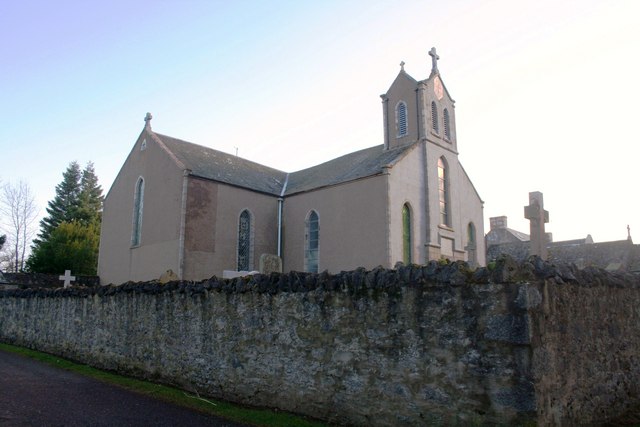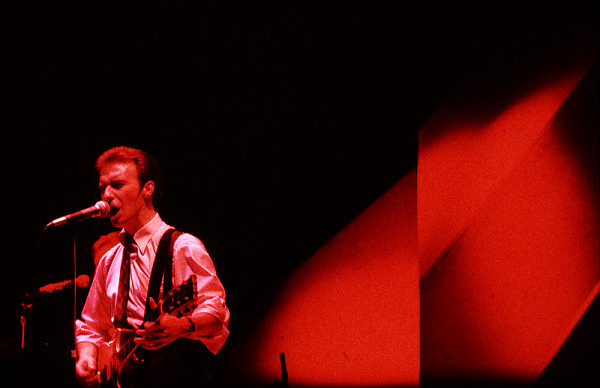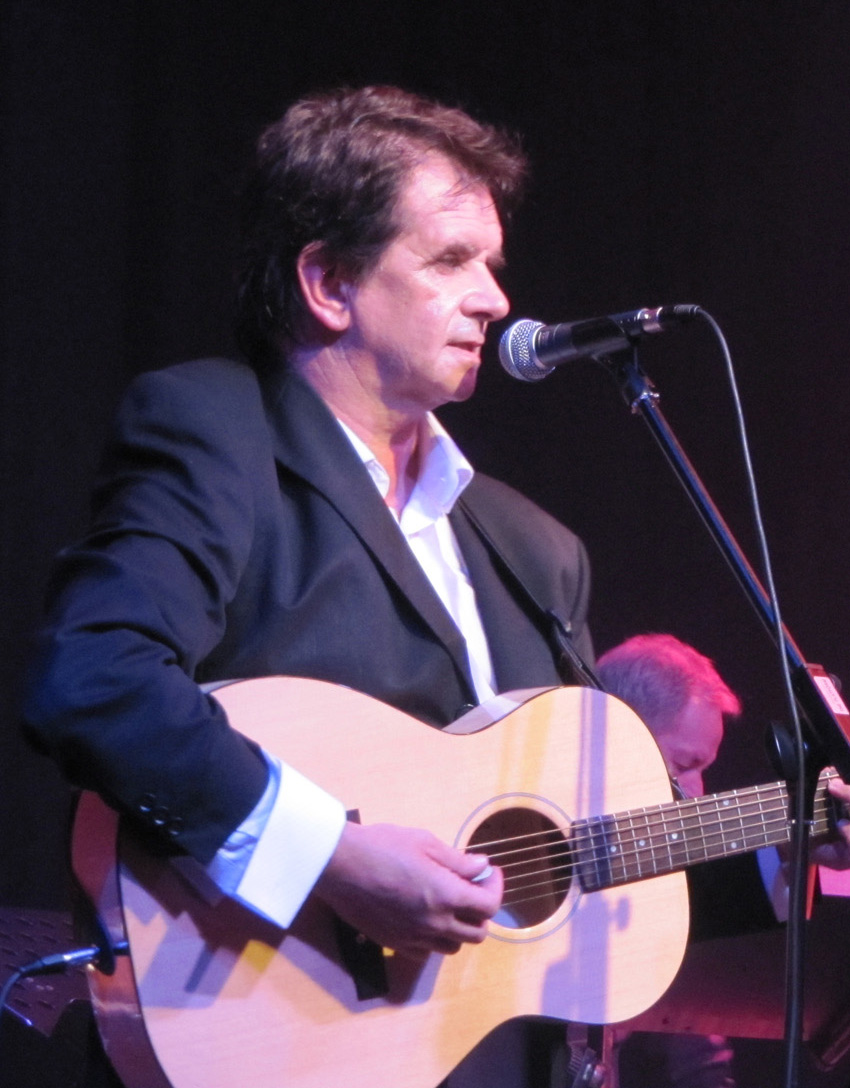|
Scottish Gaelic Punk
Scottish Gaelic punk (also known as Gaelic punk) is a subgenre of punk rock in which bands sing some or all of their music in Scottish Gaelic. The Gaelic punk scene is, in part, an affirmation of the value of minority languages and cultures. Gaelic punk bands express political views, particularly those related to anarchism and environmentalism. History Punk in the Welsh language, particularly the bands connected with the Anhrefn record label, was an early inspiration to the Gaelic punk scene in Scotland. The Scottish rock band Runrig's first album (Play Gaelic) in 1978 is considered to be the first notable modern Scottish Gaelic-language music album; other than Ultravox's 1984 album "Lament", which contained some Gaelic lyrics in the song ''Man of Two Worlds'', and mid-1990s grindcore band Scatha, from Tomintoul who featured Gaelic in several of their songs, there were no further albums of modern music all in Gaelic until spring 2005, when Oi Polloi and Mill a h-Uile Rud bo ... [...More Info...] [...Related Items...] OR: [Wikipedia] [Google] [Baidu] |
Scottish Gaelic
Scottish Gaelic ( gd, Gàidhlig ), also known as Scots Gaelic and Gaelic, is a Goidelic language (in the Celtic branch of the Indo-European language family) native to the Gaels of Scotland. As a Goidelic language, Scottish Gaelic, as well as both Irish and Manx, developed out of Old Irish. It became a distinct spoken language sometime in the 13th century in the Middle Irish period, although a common literary language was shared by the Gaels of both Ireland and Scotland until well into the 17th century. Most of modern Scotland was once Gaelic-speaking, as evidenced especially by Gaelic-language place names. In the 2011 census of Scotland, 57,375 people (1.1% of the Scottish population aged over 3 years old) reported being able to speak Gaelic, 1,275 fewer than in 2001. The highest percentages of Gaelic speakers were in the Outer Hebrides. Nevertheless, there is a language revival, and the number of speakers of the language under age 20 did not decrease between the 2001 and ... [...More Info...] [...Related Items...] OR: [Wikipedia] [Google] [Baidu] |
Tomintoul
Tomintoul (; from gd, Tom an t-Sabhail, meaning "Hillock of the Barn") is a village in the Moray council area of Scotland in the historic county of Banffshire. Within Cairngorms National Park, the village lies close to the banks of the River Avon and is said by some to be the highest village in the Scottish Highlands, although at it is still much lower than the highest village in Scotland (Wanlockhead, in Dumfries and Galloway at 466m). By 1841, the parish reached a population of 1,722. In 1951, this had fallen to just 531. The 2011 census indicated a village population of 716 people. The village is historically part of the Parish of Kirmichael. The 2004 film '' One Last Chance'', starring Kevin McKidd and Dougray Scott, was filmed in the village and the areas around it. The village is on the famed Whisky Trail, which also includes Dufftown, Keith, Tomnavoulin, and Marypark. The surrounding countryside forms the Glenlivet Estate. Tomintoul Golf Club (now defunct) was ... [...More Info...] [...Related Items...] OR: [Wikipedia] [Google] [Baidu] |
Grindcore
Grindcore is an extreme fusion genre of heavy metal and hardcore punk that originated in the mid-1980s, drawing inspiration from abrasive-sounding musical styles, such as thrashcore, crust punk, hardcore punk, extreme metal, and industrial. Grindcore is considered a more noise-filled style of hardcore punk while using hardcore's trademark characteristics such as heavily distorted, down-tuned guitars, grinding overdriven bass, high-speed tempo, blast beats, and vocals which consist of growls, shouts and high-pitched shrieks. Early groups like Napalm Death are credited with laying the groundwork for the style. It is most prevalent today in North America and Europe, with popular contributors such as Brutal Truth and Nasum. Lyrical themes range from a primary focus on social and political concerns, to gory subject matter and black humor. A trait of grindcore is the "microsong" much shorter than average for punk or metal; several bands have produced songs that are only seconds i ... [...More Info...] [...Related Items...] OR: [Wikipedia] [Google] [Baidu] |
Ultravox
Ultravox (earlier styled as Ultravox!) were a British new wave band, formed in London in April 1974 as Tiger Lily. Between 1980 and 1986, they scored seven Top Ten albums and seventeen Top 40 singles in the UK, the most successful of which was their 1981 hit "Vienna". From 1974 until 1979, singer John Foxx was frontman and the main driving force behind Ultravox. Foxx left the band in March 1979 to embark on a solo career and, following his departure, Midge Ure officially took over as lead singer, guitarist and frontman on 1st November 1979 (despite writing and rehearsing with the band from April of that year) after he and keyboardist Billy Currie worked in the studio project Visage. Ure revitalised the band and steered it to commercial chart success lasting until 1987, at which time the group disbanded. A new line-up, led by Currie, was formed in 1992, but achieved limited success, with two albums failing to chart and one solitary single reaching 90 in the UK Singles Chart. ... [...More Info...] [...Related Items...] OR: [Wikipedia] [Google] [Baidu] |
Play Gaelic
Play most commonly refers to: * Play (activity), an activity done for enjoyment * Play (theatre), a work of drama Play may refer also to: Computers and technology * Google Play, a digital content service * Play Framework, a Java framework * Play Mobile, a Polish internet provider * Xperia Play, an Android phone * Rakuten.co.uk (formerly Play.com), an online retailer * Backlash (engineering), or ''play'', non-reversible part of movement * Petroleum play, oil fields with same geological circumstances * Play symbol, in media control devices Film * ''Play'' (2005 film), Chilean film directed by Alicia Scherson * ''Play'', a 2009 short film directed by David Kaplan * ''Play'' (2011 film), a Swedish film directed by Ruben Östlund * ''Rush'' (2012 film), an Indian film earlier titled ''Play'' and also known as ''Raftaar 24 x 7'' * ''The Play'' (film), a 2013 Bengali film Literature and publications * ''Play'' (play), written by Samuel Beckett * ''Play'' (''The New York Times'' ... [...More Info...] [...Related Items...] OR: [Wikipedia] [Google] [Baidu] |
Runrig
Runrig were a Scottish Celtic rock band formed on the Isle of Skye in 1973. From its inception, the band's line-up included songwriters Rory Macdonald and Calum Macdonald. The line-up during most of the 1980s and 1990s (the band's most successful period) also included Donnie Munro, Malcolm Jones, Iain Bayne, and Pete Wishart. Munro left the band in 1997 to pursue a career in politics and was replaced by Bruce Guthro. Wishart left in 2001 and was replaced by Brian Hurren. The band released fourteen studio albums, with a number of their songs sung in Scottish Gaelic. Initially formed as a three-piece dance band known as 'The Run Rig Dance Band', the band played several low key events, and has previously cited a ceilidh at Kelvin Hall, Glasgow as their first concert. Runrig's music is often described as a blend of folk and rock music, with the band's lyrics often focusing upon locations, history, politics, and people that are unique to Scotland. Songs also make references to ... [...More Info...] [...Related Items...] OR: [Wikipedia] [Google] [Baidu] |
Record Label
A record label, or record company, is a brand or trademark of music recordings and music videos, or the company that owns it. Sometimes, a record label is also a publishing company that manages such brands and trademarks, coordinates the production, manufacture, distribution, marketing, promotion, and enforcement of copyright for sound recordings and music videos, while also conducting talent scouting and development of new artists, and maintaining contracts with recording artists and their managers. The term "record label", derives from the circular label in the center of a vinyl record which prominently displays the manufacturer's name, along with other information. Within the mainstream music industry, recording artists have traditionally been reliant upon record labels to broaden their consumer base, market their albums, and promote their singles on streaming services, radio, and television. Record labels also provide publicists, who assist performers in gaining positi ... [...More Info...] [...Related Items...] OR: [Wikipedia] [Google] [Baidu] |
Anhrefn Records
Recordiau Anhrefn (Welsh for Anhrefn Records) was a record label established in 1983 by Rhys Mwyn. Based in the small mid-Wales village of Llanfair Caereinion, before Rhys and his brother Sion Sebon moved to Bangor, North Wales, the record label was initially an outlet for their own band Yr Anhrefn but soon went on to release records by other Welsh groups, providing early exposure for such influential names as Datblygu, Fflaps and Llwybr Llaethog. Its second release came in the form of a compilation album called ''Cam o'r Tywyllwch'' which rose to prominence on its release in 1985 when John Peel played tracks off it on his BBC Radio One show. The album spawned Machlud (who featured a very young Gruff Rhys who would later form Super Furry Animals) and Y Cyrff (two of whom would later form Catatonia). Although only releasing a handful of records between 1983 and its dissolution in 1990, the label provided a subversive alternative to the ultra-conservative Welsh music scene of t ... [...More Info...] [...Related Items...] OR: [Wikipedia] [Google] [Baidu] |
Welsh Language
Welsh ( or ) is a Celtic language family, Celtic language of the Brittonic languages, Brittonic subgroup that is native to the Welsh people. Welsh is spoken natively in Wales, by some in England, and in Y Wladfa (the Welsh colony in Chubut Province, Argentina). Historically, it has also been known in English as "British", "Cambrian", "Cambric" and "Cymric". The Welsh Language (Wales) Measure 2011 gave the Welsh language official status in Wales. Both the Welsh and English languages are ''de jure'' official languages of the Welsh Parliament, the Senedd. According to the 2021 United Kingdom census, 2021 census, the Welsh-speaking population of Wales aged three or older was 17.8% (538,300 people) and nearly three quarters of the population in Wales said they had no Welsh language skills. Other estimates suggest that 29.7% (899,500) of people aged three or older in Wales could speak Welsh in June 2022. Almost half of all Welsh speakers consider themselves fluent Welsh speakers ... [...More Info...] [...Related Items...] OR: [Wikipedia] [Google] [Baidu] |
Anarchism
Anarchism is a political philosophy and movement that is skeptical of all justifications for authority and seeks to abolish the institutions it claims maintain unnecessary coercion and hierarchy, typically including, though not necessarily limited to, governments, nation states, and capitalism. Anarchism advocates for the replacement of the state with stateless societies or other forms of free associations. As a historically left-wing movement, usually placed on the farthest left of the political spectrum, it is usually described alongside communalism and libertarian Marxism as the libertarian wing (libertarian socialism) of the socialist movement. Humans lived in societies without formal hierarchies long before the establishment of formal states, realms, or empires. With the rise of organised hierarchical bodies, scepticism toward authority also rose. Although traces of anarchist thought are found throughout history, modern anarchism emerged from the Enlightenment. ... [...More Info...] [...Related Items...] OR: [Wikipedia] [Google] [Baidu] |
Scottish Gaelic Language
Scottish Gaelic ( gd, Gàidhlig ), also known as Scots Gaelic and Gaelic, is a Goidelic language (in the Celtic branch of the Indo-European language family) native to the Gaels of Scotland. As a Goidelic language, Scottish Gaelic, as well as both Irish and Manx, developed out of Old Irish. It became a distinct spoken language sometime in the 13th century in the Middle Irish period, although a common literary language was shared by the Gaels of both Ireland and Scotland until well into the 17th century. Most of modern Scotland was once Gaelic-speaking, as evidenced especially by Gaelic-language place names. In the 2011 census of Scotland, 57,375 people (1.1% of the Scottish population aged over 3 years old) reported being able to speak Gaelic, 1,275 fewer than in 2001. The highest percentages of Gaelic speakers were in the Outer Hebrides. Nevertheless, there is a language revival, and the number of speakers of the language under age 20 did not decrease between the 2001 and 20 ... [...More Info...] [...Related Items...] OR: [Wikipedia] [Google] [Baidu] |






